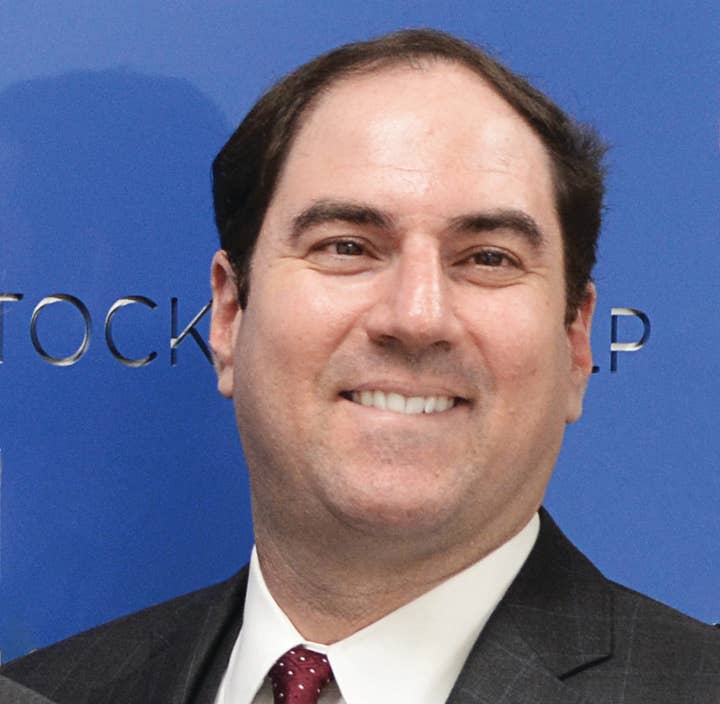Epic vs Apple - Week Two In Review: Does the judge have a solution in mind?
Legal experts weigh in on the second week of the trial and the battle of the economists
The antitrust trial that could reshape the mobile games industry rumbles on, having now entered what should be its final week.
As the focus finally turns to Apple and its defence against Epic's accusations of monopolistic and anti-competitive behaviour -- and following last week's article -- we reached out to legal experts for their take on last week's proceedings.
Most of the sessions for week two of Epic vs Apple were dedicated to the economists each side called to press forward with their definitions of relevant markets and aspects of the smartphone business that may influence the judge's decision at the end of the trial.
This stage of the trial has been dubbed by many as the "battle of the experts." Gamma Law managing partner David B. Hoppe says that, while Epic is said to have made a decent effort in fighting to assert its view of iOS as "a gaming universe unto itself," Apple managed to "parry every thrust Epic has made."

"Epic expert Michael Cragg testified to what's common knowledge among 14-year-old gamers -- there is a great difference between playing Fortnite, or any other game, on iPhone and playing it on a console," he explains. "But Apple's statistics -- only a little more than 10% of Fortnite players and 13% of the game's revenue came from players using iOS during the time in question -- shows that even if gameplay is different, iPhone represents a small part of the market for Fortnite.
"This also blunts Cragg's distinction of mobile play as a 'fleeting experience.' If I were Apple, I would argue that this is because most players prefer to play on consoles, resorting to iPhone only when they are forced to leave home."
Richard Hoeg, managing partner of The Hoeg Law Firm, suggests that Apple's arguments this week were not as strong as they could have been, which may work against them in the long run.
"While not as comprehensive as Epic's experts, Apple's experts did find themselves in some blind alleys and red herring arguments of their own on cross-examination, including continued fruitless -- and frankly silly -- discussions on what makes a 'game,' voluntarily introducing xCloud and GeForce Now as positives enabled by Apple's technology -- while ultimately admitting that Apple was blocking native apps for both services -- and some meandering thoughts on the nature of market substitutes, complements, and liquor stores."
"The sides battled to a stalemate on what a game is last week, but it could be worth pursuing further"
David B. Hoppe, Gamma Law
One thing that drew the attention of all our legal experts this week was the conduct of Judge Yvonne Gonzales Rogers. Each cited their own examples of where she interjected with more pertinent questions for either party's attorneys, cutting to the heart of this ongoing debate.
"Last week, her questions were more focused," says Thomas Buscaglia, who runs law firm The Game Attorney. "Unfortunately, at times, the experts' answers were not. At one point, after several attempts to get a clear answer from an expert, [Gonzales Rogers] just simply gave up and moved on. That said, it does appear that the judge is starting to get a better handle on how things work in our industry."
Some of her comments and questions also indicate a potential solution that members of our panel believe she might propose at the end of this trial.
One of the arguments at the heart of Epic's case is that Apple does not allow direct payments to developers or even promotions or information on where to make in-game purchases cheaper outside of the iOS ecosystem. Gonzales Rogers is reported to have asked last week on this subject, "What's so bad about it anyway, for consumers to have choice?" -- suggesting Apple could be ordered to allow app developers to tell users about alternative payment options.
"As others have reported, it seems fair to infer that the judge appears to be contemplating whether there is a less restrictive alternative to how Apple is currently running its App Store," explains David Kesselman, partner at California law firm Kesselman Brantly Stockinger. "That would be a remarkable turn of events. It at least suggests that the judge is open to the possibility that Epic has met its burden that Apple has monopoly power and wielded it in an exclusionary manner. That's because the judge's questions suggest that she might be focused on issues even further down the line.
"Assuming that Epic has made out a prima facie case, Apple still gets to proffer a legitimate business justification to justify its conduct. Here, Apple has strenuously argued that it needs to run the App Store as a 'walled garden' to protect consumer privacy and safety. But even if the judge finds that Apple has proffered a legitimate justification, Epic can still win if the judge finds there is a less restrictive means of protecting those consumer interests.

"The judge's questions seem to ask whether Apple could still maintain its walled garden, and thus protect consumer security and privacy, but nevertheless give consumers additional information that would allow for potential purchases outside the App Store. This effort at finding a middle ground might not fully satisfy Epic or other developers that support Epic's challenge to Apple's rules. But it does suggest that the Judge is taking Epic's case very seriously. And so while many antitrust practitioners believe that Epic has the higher hill to climb due to recent decades of antitrust case law that favour defendants, this suggests that Apple may not be out of the woods on this one."
The judge has also been heard questioning why Epic has not been using certain legal frameworks -- specifically 'duty to deal' or 'essential facilities' -- in its claims. Hoeg tells that, in US antitrust law, this refer to the idea that if one party holds a particularly important resource, the law can and perhaps should mandate it allow its rivals to access that resource.
"Epic had brought up the concept in its original motion, but hadn't briefed it substantially or focused on it in their case thus far, likely, in my opinion, because the doctrine has not generally been very highly thought of in the American justice system -- the Supreme Court has basically refused to rule on it one way or the other in multiple instances," says Hoeg.
"Don't expect a ruling at the close of testimony. It could well take weeks or even months"
Thomas Buscaglia, The Game Attorney
"That said, if Judge Rogers is mulling over finding that iOS access is an 'essential facility,' then that could have significant, negative ramifications for Apple -- although it is worth noting that Epic's expert, David Evans, testified that he himself would not go that far when questioned by the judge on this topic."
The battle of the experts will not necessarily prove to be the turning point in this trial. As Hoeg reports, Gonzales Rogers described this stage of the proceedings as experts "talking past each other."
Instead, the final week (well, week and a bit -- the case is currently expected to finish on Monday) will give Apple a chance to fully defend itself from Epic's antitrust claims, convincing the court as to why it runs the iOS ecosystem in the way it does with the distinctions it has made.
Hoppe also expects to see Apple launch a few lines of attack: "One option is to try to show that its 30 percent fee is completely justified, given the services it provides the apps and developers using App Store: providing a digital storefront, processing payments, app hosting, as well as the platform itself.
"Another could be to expand the discussion started last week of what a video game is, and whether Fortnite fits that definition. The sides battled to a stalemate on that issue last week, but it could be worth pursuing further."
In terms of an outcome, the panel says it's still too early to predict, with Kesselman noting that "everyone is trying to read the tea leaves on how the judge might be reacting to the testimony."
And Buscaglia reminds us that, even if the trial does finish on Monday, this is not the end of the dispute: "[The judge said] she would need a substantial time to review all of the evidence and testimony before being in a position to make a ruling. So, as is typical for bench trials of this type, don't expect a ruling at the close of testimony. It could well take weeks or even months for her to rule. Whatever she decides, that ruling is sure to be appealed."
You can follow all of our Epic vs Apple coverage here, or read the highlights in our ongoing roundup.

